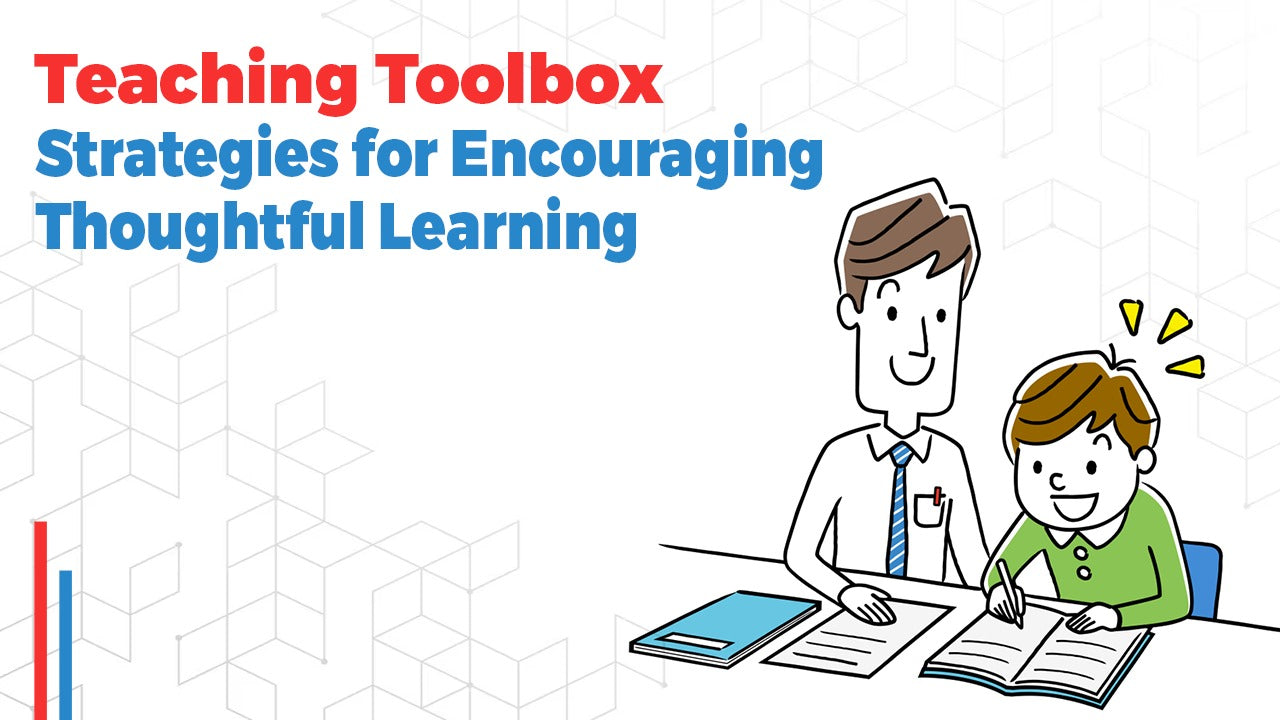Teachers play a pivotal role in shaping students' learning experiences in the dynamic landscape of education. Beyond imparting knowledge, educators serve as mentors, guides, and facilitators of intellectual growth. As education evolves, so does the need for innovative strategies to foster thoughtful learning. This blog delves into a comprehensive teaching toolbox, highlighting effective techniques that embody the essence of "Teachers help students" by promoting active engagement, critical thinking, and meaningful learning.
Fostering a Supportive Learning Environment
Creating an inclusive and nurturing classroom environment is the foundation of effective teaching. Teachers set the tone by fostering respect, empathy, and open communication. A positive atmosphere encourages students to express their thoughts and questions without fear of judgment, thus creating a safe space for learning.
Personalized Instruction for Diverse Learners
Every student is unique, and catering to diverse learning styles and abilities is key to effective teaching. Teachers can tailor their instructional methods by recognizing individual strengths and challenges and incorporating visual aids, interactive activities, and hands-on experiences. This personalized approach maximizes comprehension and engagement among students.
Active Learning Techniques
Active learning methods shift the focus from passive listening to active participation. Strategies such as group discussions, debates, role-playing, and problem-solving activities encourage students to think critically, articulate their ideas, and collaborate with peers. This approach fosters a more profound understanding and retention of information.
Socratic Questioning for Critical Thinking
Socratic questioning involves posing thought-provoking questions that stimulate critical thinking. By encouraging students to explore concepts from different angles and justify their responses, teachers help develop analytical skills and a deeper comprehension of the subject matter. This method empowers students to become active participants in their learning process.
Read More: EMPOWERING STUDENTS: TEACHER'S IMPACT ON STUDENT GOAL REALIZATION
Real-World Connections
Relating academic content to real-world scenarios enhances its relevance and encourages thoughtful learning. Teachers can connect classroom material with current events, personal experiences, or societal issues. This approach makes learning more engaging and encourages students to apply their knowledge to practical situations.
Encouraging Curiosity and Exploration
Teachers act as catalysts for curiosity-driven learning. Educators foster a sense of wonder and exploration by allowing students to pursue topics of interest within the curriculum and encouraging them to ask questions. This approach promotes independent thinking and a lifelong love for learning.
Feedback and Reflection
Constructive feedback is a powerful tool for improvement. Teachers provide timely and specific feedback that guides students' understanding and helps them identify areas for growth. Additionally, incorporating self-assessment and reflection activities empowers students to take ownership of their learning journey.
Must Read: THE ROLE OF TEACHING IN HELPING STUDENT'S CAREER AND GROWTH
Technology Integration
Incorporating technology into teaching amplifies engagement and relevance. Interactive simulations, multimedia presentations, and online resources can provide dynamic learning experiences. Teachers adept at leveraging technology create an environment that mirrors the real-world application of knowledge.
Collaborative Learning
Collaboration is an essential skill in the modern world. Encouraging collaborative projects and group activities exposes students to diverse perspectives and challenges them to work together toward a common goal. This strategy nurtures effective communication, negotiation, and problem-solving skills.
Empowering Student Autonomy
Gradually shifting responsibility to students empowers them to take charge of their learning. Providing choices in assignments, encouraging independent research, and allowing students to set learning goals cultivate a sense of ownership and accountability.
Conclusion
Effective teaching goes beyond transmitting information; it involves igniting a passion for learning and equipping students with the skills to navigate a complex world. The teaching toolbox outlined in this article embodies the ethos of "Teachers help students" by prioritizing active engagement, critical thinking, and meaningful connections. By fostering a supportive environment, tailoring instruction, promoting active learning, and incorporating diverse strategies, educators can genuinely empower their students to become lifelong learners and thoughtful contributors to society.








